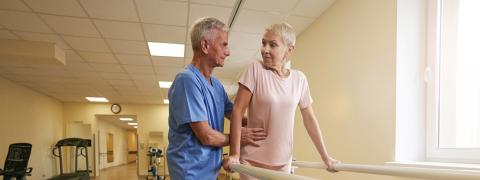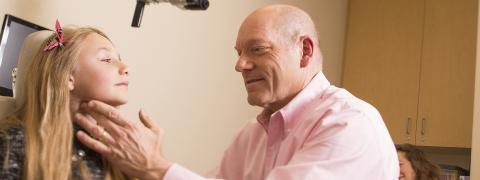
The first “mama” or “dada” is a wonderful milestone in a child’s development—in the same way the first “no” can be an irritating one. From smiles to head shakes to words and phrases, a child’s ability to communicate begins as soon as they are born and continues throughout childhood. The first three years of life, when the brain is developing and maturing, is the most intensive period for acquiring speech and language skills.
So it is quite normal for a parent or caregiver to wonder if their child is developing at a “normal” rate. Children vary in how they develop speech and language skills, but there are a series of natural milestones that parents can use to determine if their own child’s speech development may benefit from professional intervention.
The Science Behind Speech and Language
- We are programmed to develop speech and language
- Our brains develop new nerve cells and connections
- Our brains cause us to recognize speech sounds and reenact them
Milestones for Speech and Language Development
Any parent of a newborn knows the first sign of communication well — the cry. Infants learn that a cry will bring food, comfort, and mom’s reassuring face. Newborns begin to recognize sounds in their environment, such as the voice of their caregiver. As they grow, babies begin to sort out sounds that make up language. By six months of age, most babies recognize the basic sounds of their native language.
Do you wonder if your child is developing normally? The checklist below can serve as a general guide. Milestones help doctors and other health professionals determine if a child is on track or if they may need extra help. Sometimes a delay may be caused by hearing loss, while other times it may be due to a speech or language disorder.


This checklist is based upon How Does Your Child Hear and Talk?, courtesy of the American Speech–Language–Hearing Association.
How to Identify Speech and Language Problems
- Identifiers like poor eye contact, lack of focus, avoiding conversation, etc.
- Look for delays in the speech and language milestones above
We May Have a Problem - Now What?
If your child is missing key milestones on this list, or you just have concerns about their speech development, talk to their doctor. Causes of delayed speech are varied from poor hearing to facial muscles that don’t work quite right to cognition challenges to hearing loss.
Hearing loss can be temporary, caused by ear wax, middle ear fluid, or infections. Many children with temporary hearing loss can have their hearing restored through medical treatment or minor surgery.
Your doctor may refer you to a speech-language pathologist to evaluate your child. Depending on the result of the evaluation, the speech-language pathologist may suggest activities you can do at home to stimulate your child’s development, a group or individual therapy, evaluation by an audiologist, or a developmental psychologist.
Whether you suspect your child is struggling with a hearing problem, battling chronic ear infections, or have other ear, nose and throat issues, Sierra Nevada ENT and Sierra Nevada Hearing Aid Center have the expertise to address your needs. Call us to make your appointment with a member of our knowledgeable and skilled care team.
- Education


